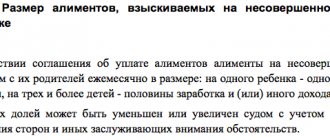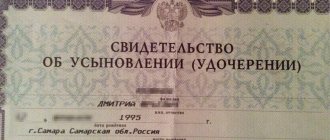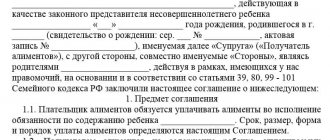Tax policy is one of the most important attributes of the state and the full functioning of its institutions. Tax should be understood as a mandatory gratuitous payment to the state, which is made by legal entities and individuals with a certain frequency and at a specific rate.
In accordance with Russian legislation, all fiscal fees are divided into federal and local. This criterion determines which level of budget the collected funds are used to replenish.
Paying taxes is one of the duties of a citizen. Various types of sanctions are provided for failure to comply with the legal requirements of fiscal authorities. However, certain categories of persons are completely exempt from paying part of the tax payments.
We are talking about the most socially vulnerable of them, including pensioners. In particular, the latter are completely exempt from payments for property they own. In this regard , many pensioners who own vehicles are concerned about whether they are entitled to benefits associated with paying the corresponding tax. Let's look at it in more detail later in the article.
Transport tax - what is it?
Transport tax is a special payment made by citizens and organizations that own vehicles.
Among other things, these include:
- cars and trucks;
- motorcycles and scooters;
- self-propelled vehicles;
- water vehicles.
To charge this fiscal fee, you only need to have ownership of a vehicle without additional conditions.
When it comes to transport tax, the fee primarily applies to a car or truck. It should also be noted that its amount may be different for different categories of vehicles. This is due to the fact that the tax base for its calculation is the power of the car engine, which is traditionally measured in horsepower. Accordingly, the larger it is, the more significant the amount the owner will have to pay.
Important! The tax rate may vary depending on the specific region. As a rule, the further north the federal subject is, the higher it is.
Transport tax falls under the category of local taxes. This means that all funds collected are sent to the budget of the subject of the federation. Accordingly, regional authorities use this money to repair existing roads , build new ones, and also cover the costs of maintaining road infrastructure.
Does a pensioner pay transport tax?
Pensioners belong to one of the categories of citizens who, by virtue of their status, have the right to claim many types of benefits, including those related to taxation. However, current federal legislation does not provide for their exemption from payment of transport tax. In addition, existing regulations do not imply a reduction in the tax rate for this category of citizens.
In this regard , the pensioner will need to pay the appropriate tax for vehicles owned. However, among retired citizens, there are certain categories that have benefits.
In addition, a number of constituent entities of the federation have adopted their own regulations, where pensioners are exempt from paying transport tax or the conditions for calculating it are much softer. However, local regulations are valid only in the territory of a specific region, and are not generally binding for the entire country.
Who is exempt from paying
It has been established at the federal level that the following categories of citizens are exempt from paying transport tax or pay it in a smaller amount:
- disabled people and veterans of World War II and military operations;
- prisoners of Nazi concentration camps;
- persons affected by the radiation disaster at the Chernobyl nuclear power plant;
- disabled people of groups I and II;
- large families;
- parents of disabled children.
Reference! This benefit is provided on an application basis. This means that the Federal Tax Service will accrue payments until the person entitled to it submits a corresponding application to the tax service.
Transport tax for pensioners in 2021
Payment of transport tax is established for citizens whose cars are registered with government agencies. Regions are empowered to establish preferential conditions for persons receiving pension benefits. This also applies to tax payments on vehicles. Federal benefits affect only a small portion of vehicles used by disabled people.
ATTENTION . Including, clarify whether persons of retirement age are included in the list of beneficiaries. In addition, it must be remembered that citizens with the status of veterans or participants of the Second World War who are recognized as disabled have the right to count on additional payments. Such payments are financed using the regional budget. When contacting the fiscal authority, you need to clarify your status.
The legislator indicates that in order to use preferential conditions, a citizen will need to draw up an application. A person who has ownership rights to a vehicle must collect a package of papers and send it to the fiscal authorities. This can be done using the Internet or postal services. In the event that a citizen does not submit documentation on time, he has the right to receive the overpaid funds. Recalculation is made for the last three years.
For vehicles that have been converted for the purpose of transporting citizens who have lost their ability to work, a tax rate of zero is established. You need to understand that simply changing the car is not enough, since you need to issue a certificate. This document is used to confirm changes made to the design. Preferential conditions prescribed in federal law can be applied to an unlimited number of vehicles. This means that if a beneficiary has several objects of taxation, he will be exempt from payment for all of them.
For example, this could be a certificate confirming loss of ability to work. Before submitting your application, you will need to know your Taxpayer Identification Number (TIN). To do this, you can use the official website of the tax authority. On the main page of the portal you will need to select the “Find out TIN” section.
Heroes of the Soviet Union, Heroes of Socialist Labor, Heroes of the Russian Federation, persons awarded the Order of Lenin, holders of the Order of Glory of three degrees, parents of deceased (deceased) Heroes of the Soviet Union, Heroes of the Russian Federation, holders of the Order of Glory of three degrees, veterans of the Great Patriotic War, combat veterans actions, honorary citizens of the Kursk region, disabled people, one of the parents (adoptive parents) or guardians (trustees; adoptive parents) of a disabled child, participants in the liquidation of the consequences of the Chernobyl nuclear power plant disaster, persons with three or more minor children, pensioners in relation to domestic cars production, as well as cars of the ZAZ, Tavria and LuAZ brands for cars with engine power up to 100 hp. (up to 73.55 kW) inclusive, motorcycles and scooters of domestic production.
organizations - in relation to motorcycles, cars, sports aircraft, dual-control aircraft and helicopters intended for training flights, as well as cars intended for training citizens in military educational specialties for the Armed Forces of the Russian Federation and registered in the prescribed manner with the authorized body of the Ministry of Defense of the Russian Federation;
Heroes of the Soviet Union, Heroes of Socialist Labor, Heroes of the Russian Federation, persons awarded the Order of Lenin, holders of the Order of Glory of three degrees, parents of fallen (deceased) Heroes of the Soviet Union, Heroes of the Russian Federation, holders of the Order of Glory of three degrees, veterans of the Great Patriotic War, combat veterans actions, honorary citizens of the Kursk region, disabled people, one of the parents (adoptive parents) or guardians (trustees; adoptive parents) of a disabled child, participants in the liquidation of the consequences of the disaster at the Chernobyl nuclear power plant, persons with three or more minor children, pensioners in relation to domestic cars production with engine power over 100 hp. up to 150 hp (over 73.55 kW to 110.33 kW) inclusive, the transport tax rate is set at 10 rubles per horsepower
individual entrepreneurs and organizations included as of March 1, 2021 in accordance with the Federal Law of July 24, 2007 No. 209-FZ “On the development of small and medium-sized businesses in the Russian Federation” in the unified register of small and medium-sized businesses engaged in regular transportation passengers and luggage by buses in urban, suburban and intercity traffic in the Kursk region.
Payment of tax and advance payments of tax is made by taxpayers to the budget at the location of vehicles in the manner and within the time limits established by the laws of the constituent entities of the Russian Federation. At the same time, the tax payment deadline for taxpayers who are organizations cannot be set earlier than the deadline provided for in paragraph 3 of Art. 363.1 Tax Code of the Russian Federation. The tax amount is calculated taking into account the number of months during which the vehicle was registered to the taxpayer, based on the results of each tax period, based on documented data on vehicles subject to taxation (Articles 52 and 54 of the Tax Code of the Russian Federation).
We recommend reading: The difference between a tractor driver and a tractor driver
In addition to paying transport tax, to drive a car you need to buy a compulsory insurance policy . Casco is voluntary insurance of a vehicle (vehicle) against damage, theft or theft, which is purchased at the request of the vehicle owner. It is important to understand that OSAGO is compulsory insurance of civil liability of vehicle owners to third parties: payments under the policy are made in favor of the victim, and comprehensive insurance is voluntary property insurance that protects the interests of the insured (beneficiary) regardless of his fault. Therefore, unlike compulsory motor liability insurance, the cost of comprehensive insurance is not regulated by the state, but is set by the insurance company itself. buy comprehensive insurance and compulsory motor insurance policies from insurance companies.
Are there any benefits for pensioners
In general, the status of “pensioner” itself is not a basis for providing the opportunity not to pay transport tax. However, this applies only to the general procedure for providing benefits for the payment of the transport tax in question, provided for at the federal level.
Regional
Transport tax belongs to the category of local tax; in this regard, the subjects of the federation have quite broad powers and opportunities in terms of its assessment. They are also responsible for issues related to the provision of benefits to socially vulnerable categories of the population.
For example, in many of them, labor veterans, as well as disabled people of group III, are exempt from the need to make this fiscal payment.
Some regions establish that this benefit is also available to pensioners who have no other grounds for receiving it. It can be expressed either in complete exemption from tax or in a significant reduction in its amount, which may be associated, among other things, with the engine power of the vehicle.
In this case, the example of the Kirov region is quite typical. Thus, pensioners here pay only 50% of the accrued tax, but on the condition that they own a car with an engine power of no more than 150 horsepower. And, for example, disabled pensioners of group III receive a “discount” of 70% of the accrued payment.
Federal
Federal legislation does not allocate pensioners to a separate category of beneficiaries for the payment of transport tax. However, if they have other reasons for receiving relief, then they have the right to use it on a general basis.
Interesting!
Discussions about the need to amend tax legislation to provide transport tax benefits for pensioners at the federal level regularly arise among experts. However, given the shortage of funds in regional budgets and the poor quality of roads owned by federal subjects and municipalities, this idea is unrealizable in the near future.
Benefits for paying transport tax for pensioners in different regions of the Russian Federation
Car tax benefits for pensioners in different regions of the Russian Federation are presented in the table:
| Moscow region | There is no transport tax benefit for pensioners 2016 |
| Saint Petersburg | 100% discount for domestic cars with a power of no more than 150 hp, boats, motor boats, watercraft no more than 30 hp. |
| Leningrad region | 80% discount for cars with power not exceeding 73.55 kW |
| Amur region | The benefit is available for pensioners if the vehicle is driven personally (or by a second spouse), and the vehicle’s power is up to 10 horsepower. |
| Chelyabinsk region | There is a benefit for cars with a power not exceeding 150 horsepower, the tax amount is 1 ruble. for 1 horsepower |
| Kemerovo region | Only for pensioners who have received a labor pension, if the calculated tax amount is up to 1200 rubles, it is provided only for one vehicle |
| Ryazan Oblast | The benefit applies to pensioners with a labor pension, military personnel, and retired law enforcement officers. The benefit is provided in full for powerful cars not exceeding 150 horsepower, motorcycles - up to 45 horsepower. If you own several vehicles, the preferential treatment applies to only one. |
| Altai region | Tax benefits for pensioners on transport tax are set at 100% of the amount accrued by law. Benefits apply only to persons with a labor pension. Applies to cars with a power of no more than 73.55 kW, motorcycles with an engine power of no more than 23.75 kW, and scooters with a power of no more than 33.1 kW. |
| Arhangelsk region | Benefit 980 rubles. for absolutely all vehicles registered in the name of a pensioner |
| Belgorod region | Exemption for one vehicle with power up to 73.55 kW |
| Bryansk region | A 50% discount is provided for motorcycles, scooters with power up to 29.32 kW |
| Vladimir region | 50% tax discount for transport units registered before 01/01/2003 with a power of no more than 55.16 kW, 75% tax discount for powerful cars no higher than 110.33 kW, scooters, motorcycles - up to 36.78 kW |
| Vologda Region | 100% discount on cars with a power of up to 150 horsepower, motorcycles - no more than 40 horsepower |
| Ivanovo region | No benefits |
| Kaliningrad region | No benefits |
| Kaluga region | No benefits |
| Kursk region | The benefit applies to domestic cars, cars with a power of no more than 73.55 kW, for more powerful cars - the rate is 10 rubles. for every horsepower |
| Lipetsk region | The benefit is determined by the power: up to 100 horsepower - 2.50 rubles. for 1 horsepower, from 100-150 horsepower - 7 rubles. for 1 power, 75% discount for pensioners who own motorcycles and scooters with a power not exceeding 29.4 kW |
| Magadan Region | 100% discount for non-working pensioners for transport of any category, subject to non-business activity |
| Murmansk region | Separate benefits have been established for pensioners - former civil servants (tax 5 rubles per 1 horsepower for transport power up to 100 horsepower) and old-age pensioners (the same tax for cars, as well as for motorcycles, scooters up to 35 horsepower - 5 rubles per 1 force) |
| Nizhny Novgorod Region | 50% discount for vehicles with a capacity of up to 150 horsepower; if this standard is exceeded, there is no discount |
| Novgorod region | 50% discount for cars producing 100 horsepower, owners of trucks with no more than 100 horsepower |
| Novosibirsk region | 80% discount for cars up to 150 horsepower, 95% for self-propelled vehicles with caterpillar / pneumatic drive |
| Vologda Region | 100% discount for pensioners - owners of cars up to 150 horsepower, motorcycles up to 40 horsepower, motor boats |
| Orenburg region | 50% discount for transport units of any type, if there are several types - the benefit is given to the vehicle that has the greatest power, traction, gross tonnage |
| Oryol Region | 50% discount for cars with an engine power not exceeding 100 horsepower, motorcycles, scooters - no more than 40 horsepower |
| Penza region | No benefits |
| Pskov region | No benefits |
| Rostov region | No benefits |
| Samara Region | 50% discount on cars with an engine not exceeding 150 horsepower, motorcycles, scooters up to 40 horsepower, motor boats - up to 30 horsepower, self-propelled vehicles on pneumatic / crawler tracks no more than 100 horsepower |
| Saratov region | There are no benefits for pensioners |
| Sakhalin region | 100% for transport of any type, if it is used independently by a pensioner or by a second spouse |
| Sverdlovsk region | 100% benefit for cars with an engine no higher than 150 horsepower, trucks - up to 150 horsepower, motorcycles, scooters no more than 36 horsepower |
| Smolensk region | No benefits |
| Tambov Region | A preferential rate has been established for pensioners - 4 rubles. for 1 horsepower, only for motorcycles with a power of up to 40 horsepower |
| Tyumen region | 80% discount for trucks with a power of no more than 100 horsepower, 75% discount for trucks with a power of -100-150 horsepower, 80% discount for self-propelled transport units up to 100 horsepower |
| Tula region | 50% discount for cars with an engine up to 150 horsepower, scooters up to 20 horsepower |
| Ulyanovsk region | No benefits |
| Yaroslavl region | 100% discount for cars no more than 100 horsepower, for cars exceeding the specified power - tax is paid only on the excess power |
| Jewish Autonomous Okrug | 30% discount – for cars up to 130 horsepower, motorcycles up to 35 horsepower |
| Chukotka Autonomous Okrug | No benefits |
| Khanty-Mansi Autonomous Okrug | 50% discount for cars with a power of up to 200 horsepower, snowmobiles, motor sleds with a power of up to 30 horsepower, motorcycles with a power of 35 horsepower |
| Yamalo-Nenets District | No benefits |
| Republic of Adygea | 50% discount on cars, scooters, motorcycles regardless of power |
| Buryatia | No benefits |
| Dagestan | No benefits |
| Ingushetia | No benefits |
| Kalmykia | No benefits |
| Circassia | 80% discount for any passenger cars, motorcycles, scooters |
How to apply for a benefit
If a pensioner has grounds for receiving transport tax benefits, then he needs to submit a corresponding application to the Federal Tax Service. It should be noted that even if you have the right to a tax break, without an application from the citizen, the inspectorate will continue to accrue it.
Rules for filling out an application
The application for exemption from paying the fiscal fee has a strict and approved form.
The general rules for filling it out are:
- entering current, factual information;
- use of black ink (when handwritten);
- inadmissibility of corrections and blots;
The application is submitted with a set of documents identifying the citizen, as well as confirming the right to receive the corresponding benefit.
How to submit documents
The pensioner has the right to submit an application and related documents using one of several methods available to him.
- Personal appeal to the Federal Tax Service. A citizen can contact any tax office, even one located outside his place of residence.
- Through MFC. Multifunctional centers have convenient operating hours for citizens and are also located in almost every municipality. Please note that documents are not submitted to the tax office on the day they are submitted to the MFC.
- Electronic. You can submit an application through the State Services portal or your personal account on the Federal Tax Service website. To authenticate them, you will need an electronic digital signature.
- Through a representative. If a pensioner does not have the opportunity to submit documents personally, then a third party - a representative - can do this for him.
Attention! The authority of the representative must be confirmed by a properly executed power of attorney.
Federal legislation does not provide special benefits for pensioners in terms of exempting them from paying transport tax. However, such preferences are provided by regulations of some regions of the country. To apply for a benefit, a pensioner must contact the Federal Tax Service and provide documents confirming their right to it.








